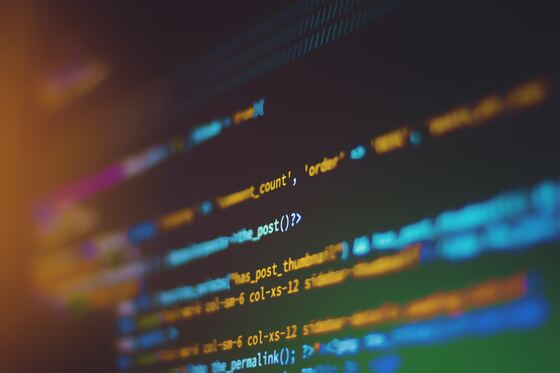Are you ready to take your e-commerce platform to the next level? Laravel API development might just be the game-changer you’ve been looking for. In this fast-paced digital world, having a robust and efficient API is crucial for seamless integration with third-party services and scalability. Let’s dive into how Laravel, a powerful PHP framework, can revolutionize your e-commerce experience!
Benefits of Using Laravel for E-commerce API Development
Laravel, a powerful PHP framework, offers numerous benefits for developing E-commerce APIs. Its elegant syntax and modular structure make it ideal for building scalable and robust applications. With Laravel’s built-in features like routing, middleware, and authentication, developers can streamline the API development process.
One of the key advantages of using Laravel is its active community support and extensive documentation. This ensures that developers have access to resources and assistance when building E-commerce APIs. Additionally, Laravel’s ORM (Object-Relational Mapping) capabilities simplify database interactions, making data management more efficient.
Laravel’s testing tools enable developers to write comprehensive test cases for their APIs, ensuring high quality and reliability. The framework also provides security features such as CSRF protection and encryption mechanisms to safeguard sensitive data in E-commerce applications.
Understanding the Structure of an E-commerce API Using Laravel
When delving into the structure of an E-commerce API using Laravel, it’s essential to understand the role APIs play in facilitating communication between different software applications. In this context, Laravel provides a robust framework for developing APIs that power E-commerce platforms seamlessly.
The structure of an E-commerce API using Laravel typically involves defining routes, controllers, models, and migrations to handle various functionalities within the platform. Routes help in mapping HTTP endpoints to controller actions, where business logic is implemented.
Controllers act as the intermediary between incoming requests and responses sent back to users. They orchestrate data retrieval from models, process requests accordingly, and return appropriate responses based on the business logic defined.
Models represent database tables and are responsible for interacting with the database through Eloquent ORM (Object-Relational Mapping). Migrations define the database schema changes needed for storing data effectively within an E-commerce platform powered by Laravel APIs.
Setting Up a Local Development Environment for Laravel API
Setting up a local development environment for Laravel API is crucial for efficient coding. Ensure you have PHP and Composer installed on your machine. Next, install Laravel using Composer by running a simple command in your terminal.
Once Laravel is set up, create a new project using the CLI tool provided. This will generate the necessary files and folders to kickstart your development process. Don’t forget to configure your database settings in the .env file.
To test your API endpoints locally, utilize tools like Postman or Insomnia. These platforms allow you to send requests and receive responses easily. Remember to run migrations and seeders to populate your database with sample data for testing purposes.
Don’t overlook setting up version control with Git to track changes effectively throughout your development journey.
Building CRUD (Create, Read, Update, Delete) Functionalities for E-Commerce Using Laravel
When developing an E-commerce platform using Laravel, building CRUD functionalities is essential. This allows users to create new products, read existing ones, update information, and delete items when needed.
In Laravel, setting up these operations involves defining routes, creating controllers for each action (Create, Read, Update, Delete), and integrating them with the database model. By following Laravel’s conventions and best practices, developers can streamline the process and ensure a robust system.
Utilizing Eloquent ORM in Laravel simplifies database interactions by abstracting SQL queries into PHP methods. This makes it easier to perform CRUD operations without writing complex SQL statements manually.
With Laravel’s built-in validation features, developers can ensure data integrity and security while handling user inputs during CRUD operations. This helps prevent errors and maintain a seamless user experience on the E-commerce platform.
Integrating Third-party APIs with Laravel for Enhanced Functionality
Integrating third-party APIs with Laravel can take your E-commerce platform to the next level by providing additional features and functionalities. By leveraging external APIs, you can enhance the user experience, streamline processes, and offer a wider range of services to your customers.
With Laravel’s flexibility and robust architecture, integrating third-party APIs is seamless and efficient. Whether you need payment gateways, shipping services, or social media integrations, Laravel makes it easy to connect with external systems and expand your platform’s capabilities.
By tapping into established APIs, you can save time on development efforts and leverage existing solutions that are tried-and-tested in the industry. This not only speeds up the development process but also ensures reliability and security for your E-commerce platform.
Integrating third-party APIs with Laravel opens up a world of possibilities for enhancing functionality and providing a more comprehensive solution for both merchants and customers alike.
Conclusion
Laravel provides a robust and efficient framework for developing APIs for e-commerce platforms. With its powerful features and flexibility, Laravel simplifies the process of building, managing, and integrating APIs to create seamless shopping experiences for customers.
By utilizing Laravel’s capabilities in setting up local environments, implementing CRUD functionalities, and integrating third-party APIs, developers can enhance the functionality of their e-commerce platforms while ensuring scalability and security. Embrace Laravel for your e-commerce API development needs and unlock endless possibilities for growth and success in the competitive online market landscape.
